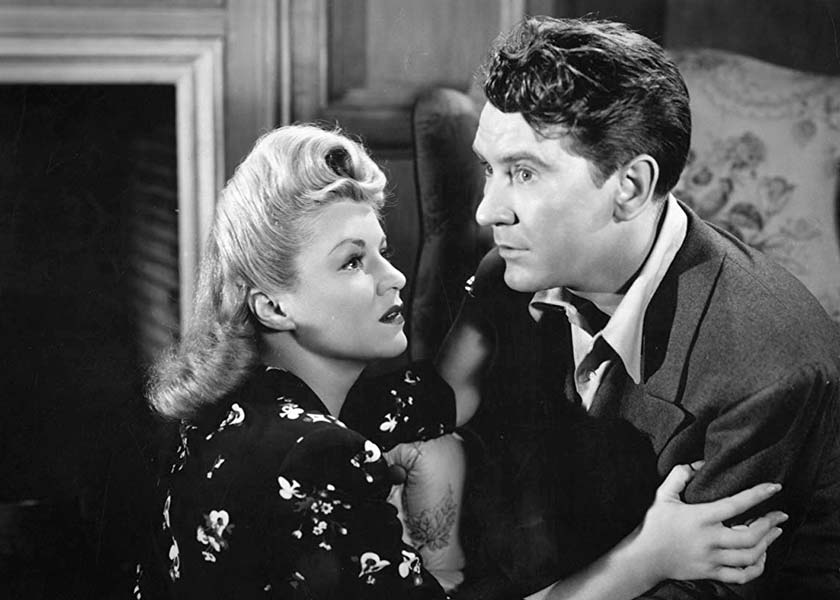Synopsis
Debris falling off a building strikes Frank Thompson (Meredith) and knocks him out. When Frank regains consciousness, he does not know where he is, how he got there, or why his cigarette case and hat both have the letters D.N. on them. He goes home to his wife but discovers that she has moved. When he finds her, she greets him happily but informs him that he disappeared more than a year before. He remembers nothing about that year. The next day a strange man follows him and tries to break into his taxi. That night, the same man, Detective Joe Marruci (Leonard), and two other policemen break into his apartment, but he escapes with his wife. Frank sends his wife to stay with her mother. He sets out to learn about his missing year.
Frank walks up and down the street where he recovered his memory. A pretty woman, looking out a window, sees him, comes out, and greets him as her beloved Danny. The woman, Ruth Dillon (Trevor), hustles him into her apartment. She reminds him that the police want him for the murder of Harry Diedrich, his employer. Shocked, he insists that she accompany him to the Diedrich house to seek the murderer.
At the house, the maid says that she was in another room during the murder. Deidrich's family, his wife, brother, and grandmother were home. As Frank searches the house, he finds Grandma Diedrich (Adeline De Walt Reynolds) in her downstairs bedroom. The old lady is paralyzed and cannot move or speak. However, she can blink, and Frank communicates with her through her blinking responses to 'yes' and 'no' questions. She blinks out the name of the killer, Ruth. Grandma saw the murder by the reflection in a mirror. When Frank confronts Ruth, she tries produces a gun over which they wrestle. The gun goes off wounding Ruth who confesses the murder as she dies in Frank's arms. Fortunately for Frank, Detective Marruci, interested in the evidence Frank is gathering, has been hanging around and hears Ruth's confession.
Discussion
A protagonist suffering from amnesia makes a strong starting point for the plot of a novel or film. The protagonist, and the audience, are held in suspense as they try to uncover their unknown past. Street of Chance, based on the novel The Black Curtain by Cornell Woolrich, is an enjoyable example of the type. In an amnesia plot, the hero often thinks that his unknown persona may have been guilty of the crime, but Frank Thompson, played ably by Burgess Meredith, is convinced of his own innocence. The suspense is well-maintained as Frank hides from the residents of the house and the police while trying to collect evidence. As red herrings, the wife and brother are not terribly convincing murder suspects. The ending, with the ambivalent murderer (Claire Trevor in a fine performance) killed by her own gun, then conveniently confessing her crimes, is rather contrived.
Cornell George Hopley-Woolrich was an American novelist and short story writer. He was born in New York City, New York, and as a child lived in South America with his father. He worked in Hollywood during the late 1920s and is credited with writing story lines and titles for several films under the pseudonym of William Irish. In 1933, Woolrich returned to New York where he lived with his mother until her death in 1957. Woolrich was a prolific writer and a recluse who rarely left his hotel room. His first published works were Jazz Age romance novels, but he is primarily famous for his many mystery stories and novels, in which everyday events go terribly wrong, and bad things happen to ordinary people. Many radio and television plays, and more than 25 films, notably Street of Chance, The Chase (1946), The Window (1949) and Rear Window (1954), have been based on his work. Woolrich's greatest strength is creating suspense that grips the reader even as the plot stretches credibility.

